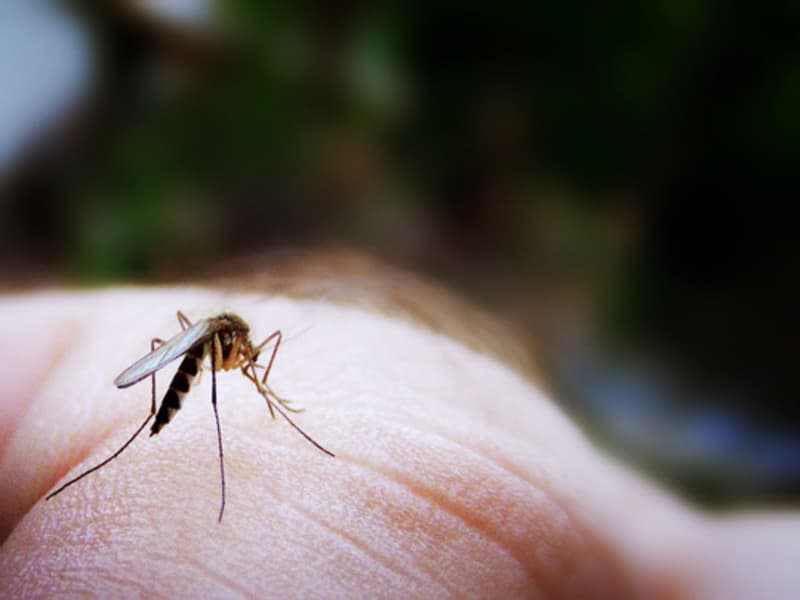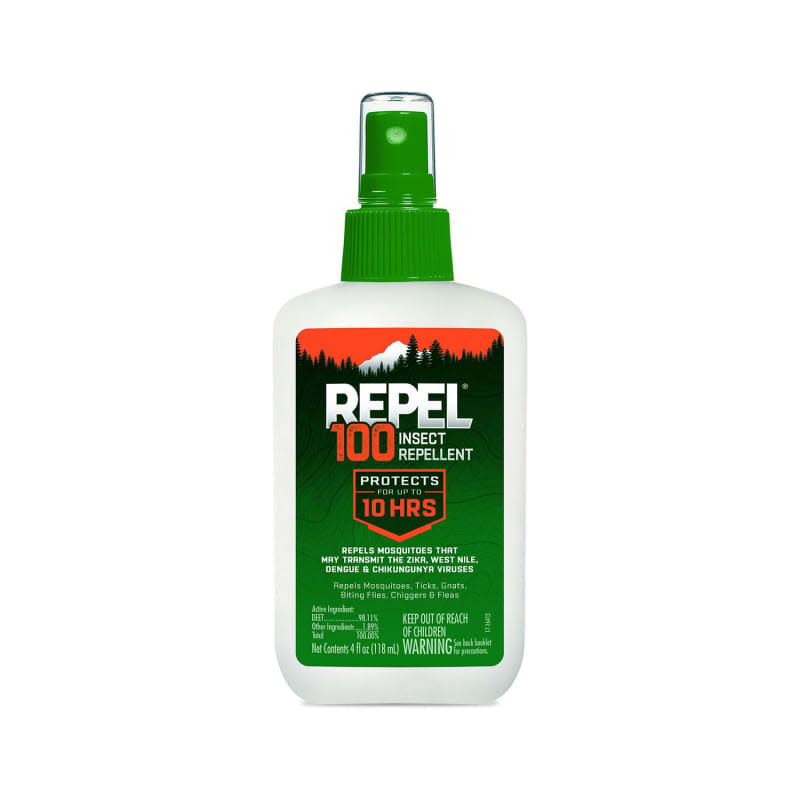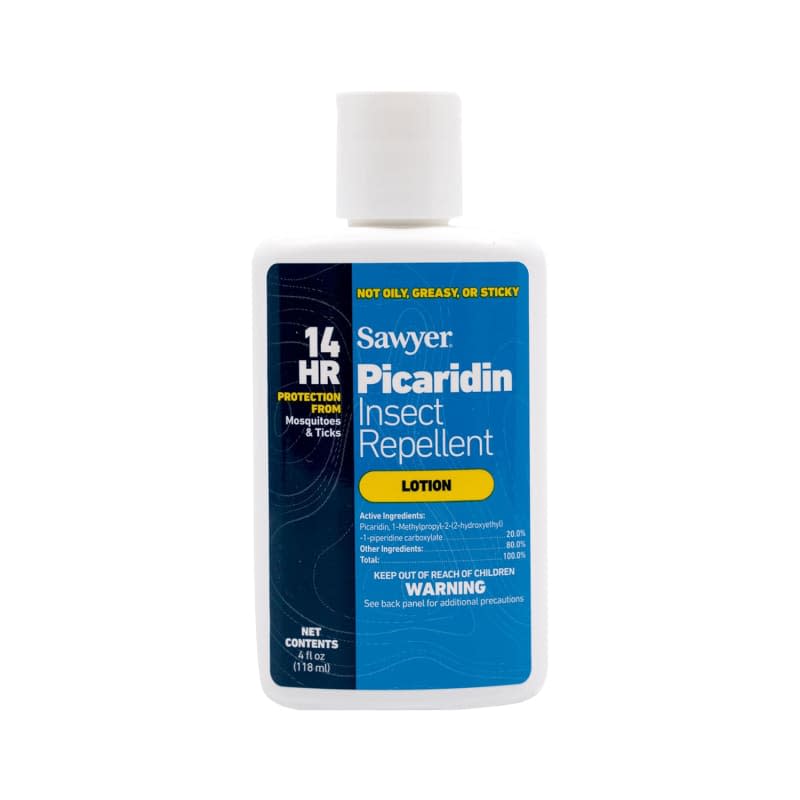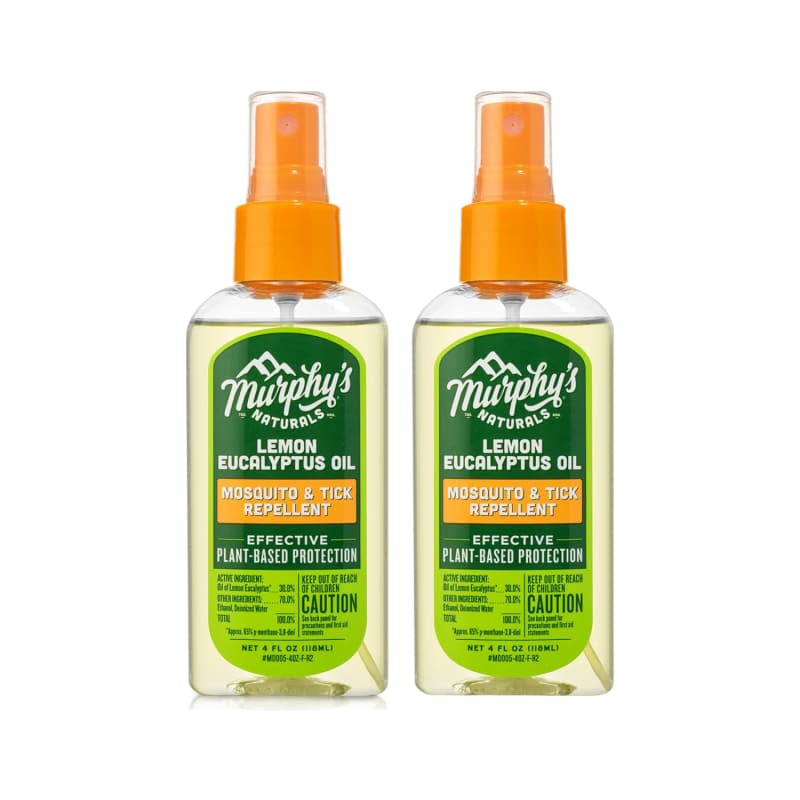We Asked 4 Pest Experts to Name the Top Mosquito Repellents

I’m determined to enjoy my backyard this summer, so I’m already plotting my defense against mosquitoes. There’s no lack of repellent sprays, candles, oils, and devices on the market, and I’m tempted to buy all of them. But I won’t give those annoying little bloodsuckers the satisfaction of also taking a bite out of my budget. So I asked four different pest experts for their help in narrowing down the most effective options. Here’s what they had to say.
Top 3 Mosquito Repellents
“The best repellents contain DEET, Picaridin, or oil of lemon eucalyptus,” says Natasha Oldham, general manager of MissQuito, a woman-led and -run mosquito control company. “All three of these ingredients have ample evidence of effectiveness in protecting people from mosquito bites.”
DEET and picaridin are chemicals that have been approved by the Environmental Protection Agency as safe for the environment. The Centers for Disease Control and the World Health Organization approve their use for humans older than two months. Lemon eucalyptus oil, on the other hand, is a natural ingredient. Let’s take a closer look at all three.
Repel 100 Insect Repellent, Pump Spray
DEET
DEET, or N,N-diethyl-meta-toluamide, is a chemical mosquito repellent developed by the U.S. Army in 1946 and approved for wide use in 1957. It protects against mosquito-borne illnesses like malaria and the Zika and West Nile viruses; it also blocks ticks from spreading Lyme disease and Rocky Mountain spotted fever. It’s not just DEET’s presence but its concentration that matters for an effective mosquito repellent. “A 30% DEET product is not going to repel mosquitos for as long as a 100% DEET product,” says Allan Bossel, operations expert at BBE Bedbug Exterminator. “That said, a 100% DEET product might not be as comfortable to use due to the smell and feeling of it on your skin.”
Sawyer Products SP564 Premium Insect Repellent with 20% Picaridin, Lotion
Picaridin
Picaridin, sometimes known as icaridin, is a synthetic compound that was first developed in the 1980s to repel biting insects, including mosquitoes, ticks, and chiggers. “Some studies are now suggesting that picaridin may be a better option compared to DEET because it’s not as oily or smelly,” says Bossel, who adds that it could also last longer than DEET. “However, if you’re using a product without one of those two ingredients, don’t expect it to work — especially in environments with very high mosquito populations.”
Not sure which one to pick? Bossel recommends two products containing one of each and testing them out before planned use.
Murphy's Naturals Lemon Eucalyptus Oil Insect Repellent Spray
Lemon Eucalyptus Oil
“While DEET-based mosquito repellents present a fast and effective solution, they are not eco-friendly,” says Nicole Carpenter, president of Black Pest Prevention. Here are the lemon eucalyptus oil products she recommends for a greener alternative.
Murphy’s Naturals Lemon Eucalyptus Oil: “I love this product for its natural protection and pleasant scent,” Carpenter says. “The effect of this repellent spray lasts around six hours and needs reapplication after rain or any other moisture exposure.”
Repel Plant-Based Lemon Eucalyptus Insect Repellent: Good for humans and the environment, this repellent is effective for up to six hours without having to reapply, says Carpenter.
All Terrain Herbal Armor: This one’s about as natural as you can get, with an ingredient list that includes citronella, peppermint, cedar, lemongrass, and geranium oils. The non-greasy formula absorbs into the skin quickly. “This makes it more comfortable to wear — especially on hot days,” Carpenter says, adding that you must apply after swimming, sweating, or getting caught in the rain.
Other Natural Alternatives to Fighting Mosquitoes
Although the pest experts I contacted all agreed on the efficacy of DEET and picaridin, they also agreed they’re not for everyone.
“When choosing a mosquito repellent, we must take into consideration where and to whom we are applying the product,” says Shannon Harlow-Ellis, associate certified entomologist and technical services manager at Mosquito Joe, a Neighborly company. “Some have significant allergies to various ingredients or may have sensitive skin.”
If using DEET or picaridin makes your skin crawl more than mosquito bites, know that there are natural alternatives. In addition to lemon eucalyptus, Harlow-Ellis recommends mixing up either of the following two recipes in a small spray bottle:
2 ounces of apple cider vinegar, 2 ounces of distilled water, and 40 drops of peppermint oil
2.5 ounces of coconut oil and 15 drops of lavender or rosemary oil for a more fragrant concoction
Even natural ingredients aren’t for everyone. For example, I hate apple cider vinegar, so I’d steer clear of that first recipe. But aside from personal preference, you’ll still need to consider allergies or sensitivities, even with natural ingredients. “You would still want to look at ingredients to ensure that they will not have adverse effects on the person it is being applied to and would need to be applied more frequently,” says Harlow-Ellis.




